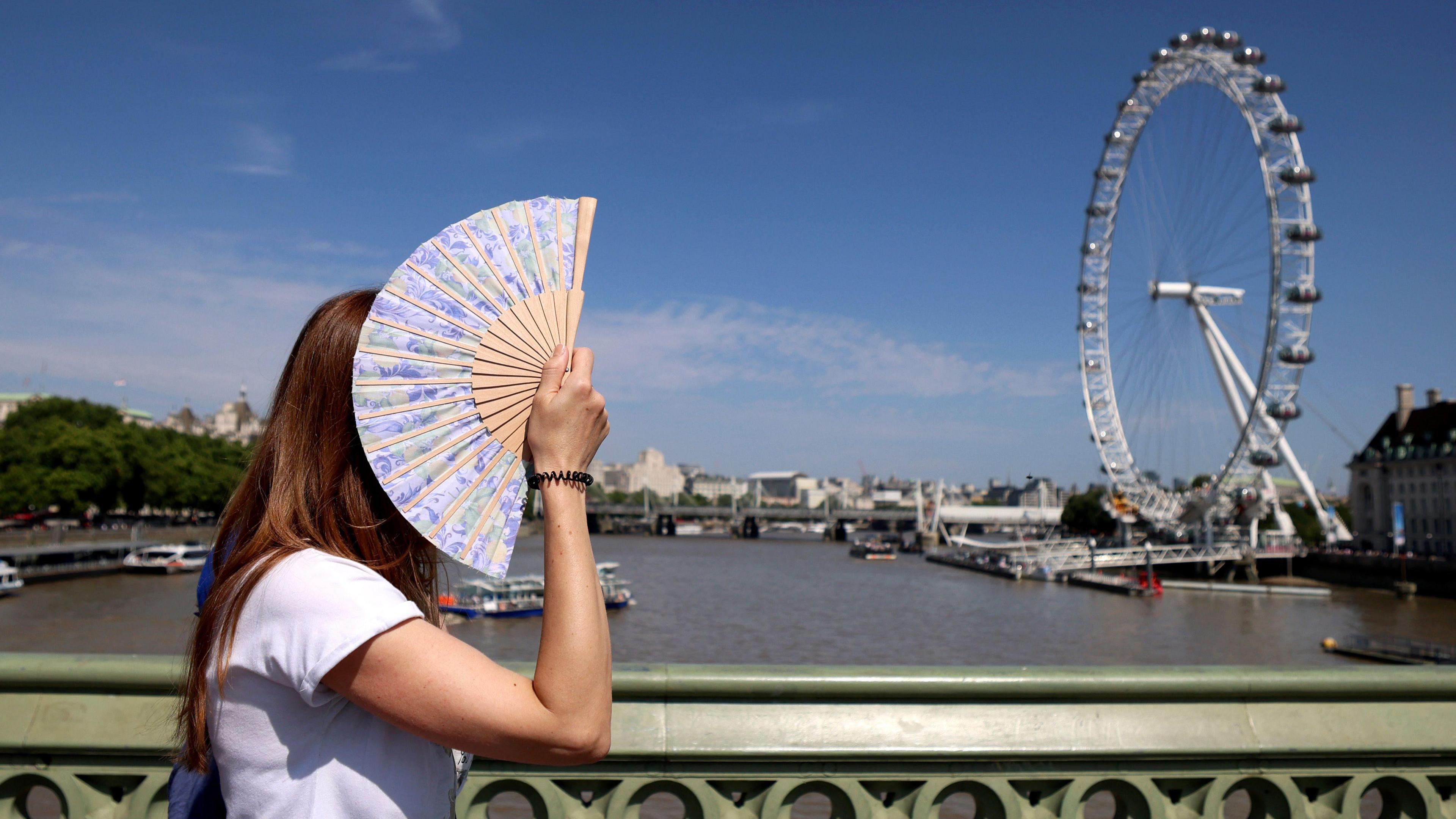Farmers hit by hay shortage due to extreme weather
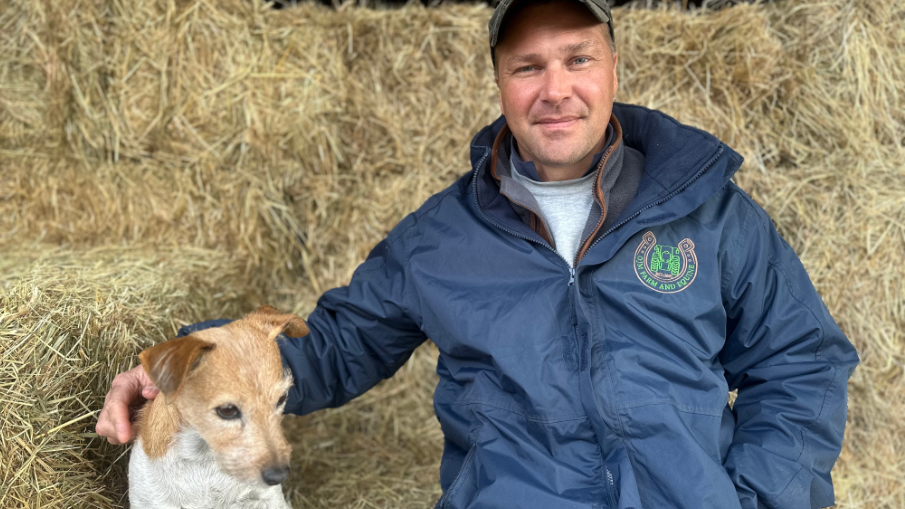
Olly Morris, a hay merchant, says it's been "really difficult" producing hay this year
- Published
Agriculture merchants and farmers say the amount of hay they have been able to produce has been "seriously limited" this year.
Olly Morris is a hay merchant in Thatcham, Berkshire and said he has been struggling to meet customer demand after a dry spring and summer.
Recent rainfall hasn't helped compensate, and for many farmers they said it is a "little too late" with crops having already suffered well ahead of any downpours.
Mr Morris explained that crop yields have continued to shrink throughout the summer and that the usual second cuts have not been possible.
"We are about 60 percent down on where we should be and we supply a lot of equine yards in the area and it has been tough," said Mr Morris.
Research commissioned by non-profit group the Energy & Climate Intelligence Unit suggested the UK is on course for its fifth lowest harvest since records began.
Farmers have been using winter stores to feed livestock this summer as the unusually dry weather in spring, external meant grass for grazing was in short supply.
Mr Morris said he has had to look for alternative suppliers to meet orders but the shortage is "a nationwide problem".
"There is hay coming in from Scotland and Wales, but it is the cost to get it to us from those areas.
"We are trying our best for our customers to find it were we can," he added.
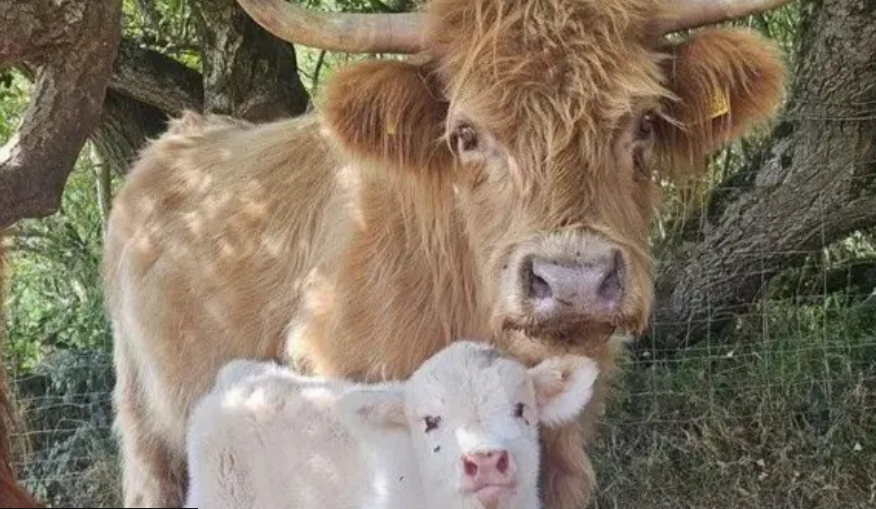
Some farmers have resorted to crowdfunding due to the lack of hay being produced
Cameron Farquharson, a tenant farmer running a small farm of sheep and Highland cattle in Dorset, resorted to crowdfunding as there was not enough grass to feed his livestock.
He said the recent rainfall has been a "good thing" and it has "kicked started the grass which is coming through strong".
He added that the crowdfunding "massively helped" and enabled them to get feed from Devon.
Joy L'Enfant runs an Alpaca farm in Hook and is also considering buying hay in, noting that local prices have gone up as supplies were down by a third.
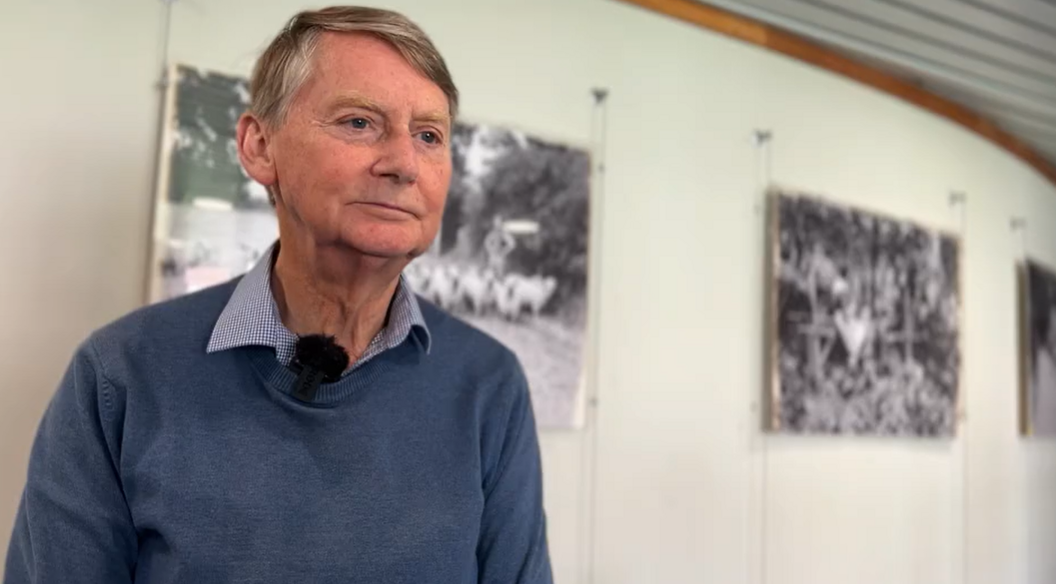
Researchers like Professor Richard Ellis the impact of climate change on crop production at the University of Reading
Professor of crop production at the University of Reading, Richard Ellis said: "As scientists we talk about the future of climate change but we don't talk enough about what's already happened."
Ellis explained that "in a wet year grass will grow a bit, but in a dry year it will stop growing completely".
He said: "climate change is disrupting the historic pattern of rainfall and of course everything varies from year to year."
Ellis warned that the long-term studies will not bring farmers any comfort as "the actual grass growing potential has declined greatly over the last 80 years".
Get in touch
Do you have a story BBC Berkshire should cover?
You can follow BBC Berkshire on Facebook, external, X (Twitter), external, or Instagram, external.
Related topics
- Published28 August
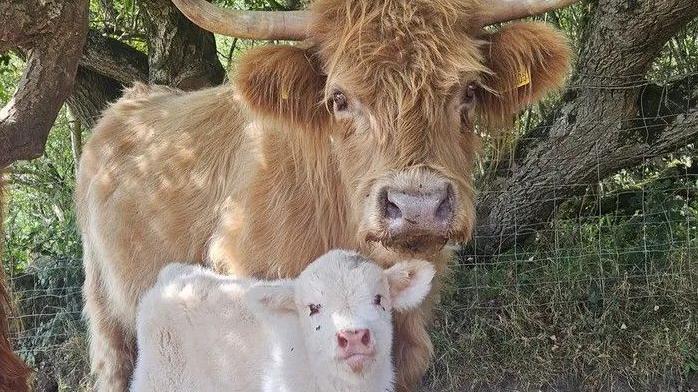
- Attribution
- Published1 September
